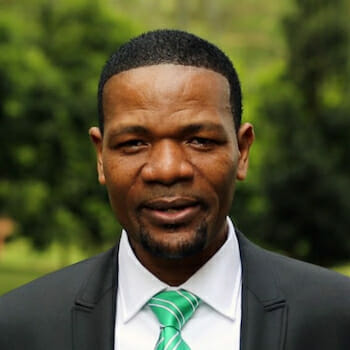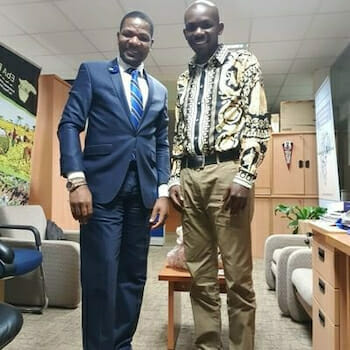
Africa’s Transformational Development Cannot be Driven by Ignoring What is Needed
Africa’s transformational development must be driven by the understanding that people are morally free agents and reserve the right to choose to develop. And if they choose not to, then there is little that can be done, but to bear the consequences. This is however not the end. There is always a way out for the willing, that needs to be facilitated. And to execute it, we must understand that the best we can do is to work very hard to devise inclusive solutions that address societal and community challenges. It is from this that we can bring people on our side so that they can choose, own, protect, and drive a realistic path to Africa’s transformational development.
The most critical step in bringing people on the side of choosing correctly is understanding context. Foundational economics tells us that a skilled person is four times the value of produced capital and fifteen times the value of natural capital. This then is to say that the only capital that should really matter to Africa is the quality of Africans.
But we are not prioritizing human capital. Why is this so? The answer lies in the wrong mainstream narratives that continue to perpetuate. We are conditioned by society to appreciate only the product and not the process. We are all culprits. We are told repeatedly in school that all we need to do is to work hard and get certificates. And that these certificates will entitle us to jobs.
This is how we have been conditioned. That a job entitles us to start living a life of luxury and enjoyment. Yet these are basic guides which hardly cover all aspects needed to achieve progress in the very dynamic and competitive global space. This is the reason why the discovery of minerals and mineral prospects are always met with euphoria and excitement. The assumption being that these minerals will somehow magically transform societies and turn them into wealthy nations. We fail to agree with the fact that these minerals are “global public goods,” wrought with contention and vested interests, which are never dependable.
What we urgently need to do is to change the narrative by putting the innovativeness, creativity, brilliance, and abilities of our people in turning challenges into opportunities to become the mainstream. Africa needs to transition to the pinnacle of knowledge-driven economies urgently and rapidly, with a citizenry that is aware and embraces its responsibility as solution providers.
We must urgently peg development strictly on the quality of our people, measured by how each of us is selflessly using what we have – our abilities, talents, knowledge, skills – to engage in enterprise activities that touch many lives and turn our contextual challenges into opportunities.
We must take to heart the fact that the greatest resource we have is us as a people. And that we cannot always benchmark our progress on what is set as a mainstream agenda. Just to give an example. In the 2010s, there was an exciting narrative that painted Africa as a continent on the rise. A false narrative by all accounts that was pegged on the volatility of global commodity prices. This narrative soon fell apart with deflating commodity prices and left many of us high and dry. The only true rise is in productivity of our people – when we have our informal sector that engages up to 80% of our people, offering competitive goods and services that can fetch a premium in the market. When we have our people taking lead in selflessly devising solutions to the contextual challenges we face.
Our skills and talents are by themselves resources. But these resources have been ignored. Through a mindset change approach called innovative volunteerism, where willing youth are voluntarily volunteering themselves to use what they have to turn challenges into opportunities, we are beginning to see willing ordinary citizens, and especially the youth, step up to the plate of responsibility with what they have. They are leveraging on passion and applying themselves to devise solutions that touch many lives.
With innovative volunteerism, willing youth of diverse disciplinary backgrounds and areas of training, are structurally guided and inspired to improve, refine and adapt their skills, work selflessly with their peers, and start devising value-added solutions targeting Africa’s sustainable agriculture and clean energy sectors. By targeting solutions in areas that engage most of Africa’s populations, innovative volunteerism as a tool is facilitating these youth to take personal responsibility for the continent’s transformation. We are seeing university graduates collaborate with school dropouts and they are structurally guided to deliver climate action solutions of clean energy in a manner that unlocks tangible socio-economic opportunities.
For example, willing youth guided to apply their skills and talents to develop climate action solutions of mechanical solar dryers using locally available materials. They are collaborating with agro-value chain actors and communal cooperatives to offer “pay-as-you-go” solar dryer services at less than 1% of the cost of owning dryers. Through this, they are contributing to reducing aflatoxins in foods by up to 58%, and thus enhancing health and food safety for communities. They are contributing to cutting post-harvest losses that cost Africa up to $48 billion annually. They are inspiring more youth to face the reality that Africans future lies in them being solutions providers, not waiting for others to give them jobs. The solar dryer dimension is only one among multiple other accessible solutions areas, that the youth can apply their ingenuity in, work with cooperatives and other informal sector players to become champion solutions providers. And by this, secure their future and that of a continent.
The views expressed in this article are those of the authors alone and do not necessarily reflect those of any institutions with which the authors are associated.


